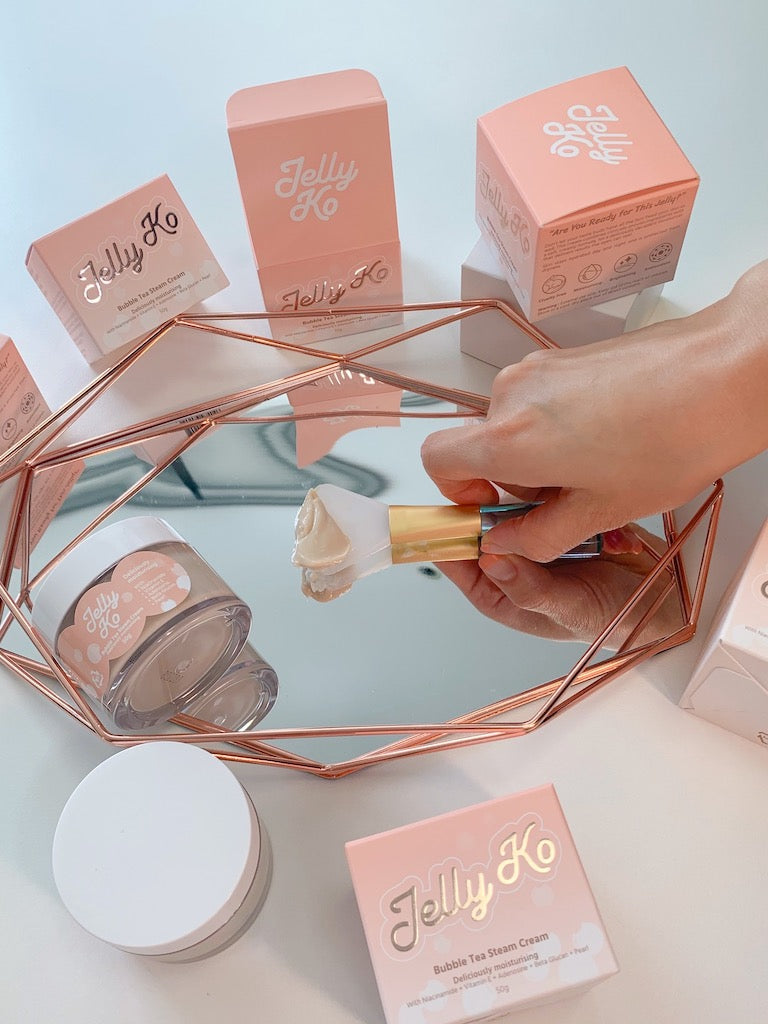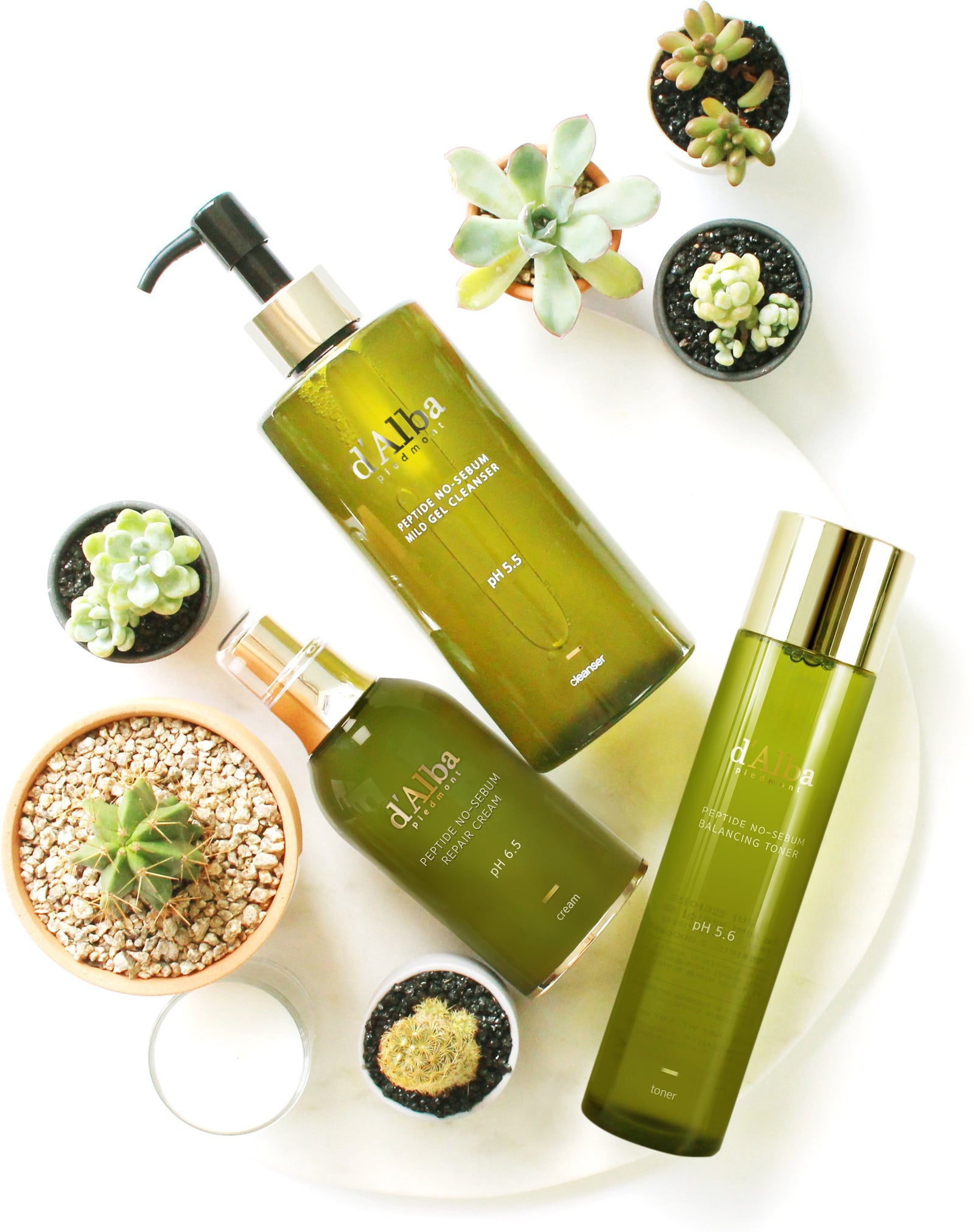The Korean Beauty Show 🎧 Your K-Beauty audio library starts here →
Menu
Do You Really Need An Eye Cream?
September 26, 2024

Do You Really Need An Eye Cream?
Depending on who you talk to an eye cream is either a total scam or a beauty staple.
While the naysayers argue that your moisturiser adequately does the job of hydrating your eyes, proponents of eye-specific formulas argue that the function and formulation of an eye cream is different to a regular cream.
So which camp is right and do you really need an eye cream? We did a little digging to find out.
Do you need to use a separate cream for your eyes?
The short answer is yes.
As Dr Nazarian of Schweiger Dermatology Group explains, the skin around the eyes is more sensitive and delicate than the rest of your body, meaning it has “some other concerns that are a little bit different than other areas of the body”.
The skin around your eyes is ten times thinner than your face, meaning that in addition to being much more delicate, it can crease and dry out quicker and is more vulnerable to environmental aggressors like wind and UV.

The skin around the eyes is also less naturally oily than the skin on the rest of your face, meaning it is harder for it to maintain the correct balance of oil and moisture to keep skin looking plump and soft. In addition to treating dehydration like a regular cream, a specialised eye cream also addresses other concerns such as dark circles and fine lines.
Even though your moisturiser might contain some of the same ingredients, the doses in which it delivers them are different to an eye formula. The ingredients are also different. Take caffeine, for example – a common component in many eye formulations, which helps to assist with a tightening and brightening effect.

Is it safe to use a regular moisturiser as an eye cream?
In some cases, yes.
Regular moisturisers are designed to hydrate the skin and reinforce the skin’s barrier, meaning it’s totally fine to apply your regular daily facial cream to your eye area as well. Issues can arise, however, if you are trying to apply anti-acne products or anti-aging creams to your eye area.

Thick, heavy and occlusive anti-aging creams can cause milia (small white bumps) when they are applied around the eyes, as they are too clogging to the delicate skin there.
Anti-acne creams are another one to avoid as they often contain ingredients that are designed to dry the skin out to balance its oil and moisture levels. Over time, they can cause the skin around the eyes to start to dry and flake.
What should you look for in an eye cream?
When looking for a food match, the safest option is to choose something that’s free from fragrance, as scented products can cause irritation or allergic reactions around the delicate eye area.
Ingredients such as Hyaluronic acid and ceramides are ideal for eye formulations, as they moisturise your skin by trapping water, helping to plump up and temporarily “fill-in” wrinkled areas.
So is Vitamin C, as it has the power to brighten your under eyes, fade dark spots, even out your skin tone, and make you look significantly more awake.
Retinol is another great ingredient, as it helps to stimulate collagen to reduce and prevent fine lines and wrinkles.


But do they actually work?
Eye creams are definitely beneficial, but they’re not miracle workers.
While they can help with brightening the skin and reducing the appearance of fine lines, there are some things that can’t be fixed with a cream alone – hereditary dark skin under the eyes, serious eye bags and the like.
Unfortunately, for more serious structural issues around the skin and muscles, only surgical intervention or the work of fillers will help to treat them.
For more about getting the most out of your eye cream tune into this episode of hte Korean Beauty Show podcast:
When should you start using one?
When it comes to skincare, the earlier the better.
Many people start using eye cream when they first start noticing fine lines around the eyes. Ideally, however, you should be using a cream even before you see a wrinkle, as the best results come from prevention.
If you have extremely dry skin, noticeable dark circles, puffy eyes or other eye-specific issues, you can start applying a cream to treat these issues.
What do you think? Let us know your thoughts in the comments!
STYLE STORY – Your Go To For Kbeauty Since 2014
Shop Now
"Many people start using eye cream when they first start noticing fine lines around the eyes. Ideally, however, you should be using a cream even before you see a wrinkle, as the best results come from prevention."
- Dr Nazarian of Schweiger Dermatology Group





Leave a comment
Comments will be approved before showing up.